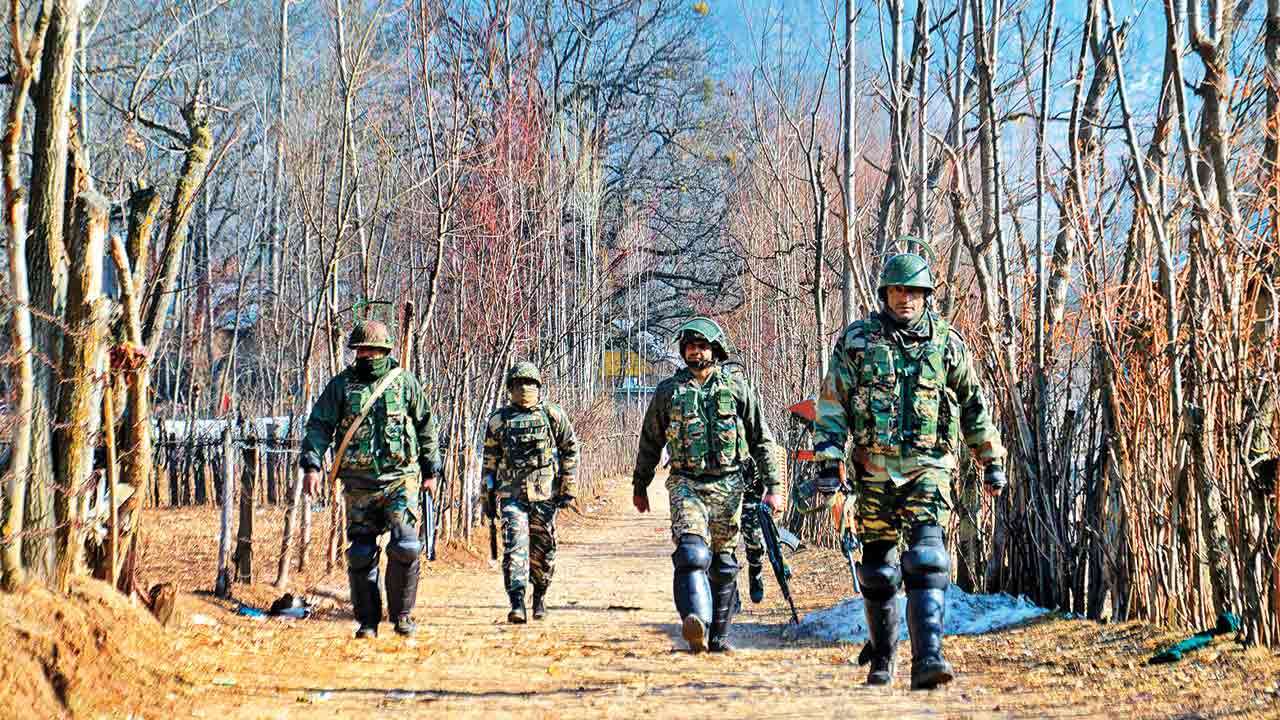
At the best of times, India-Pakistan goings-on can be confusing. Even the informed and perceptive cannot easily figure out what exactly is happening and whether it is for better or worse. This situation of confusion is well illustrated by the events which followed the meeting of retired naval officer Kulbhushan Jadhav with his wife and mother, on December 25, in an Islamabad prison.
After Jadhav’s wife and mother were allowed to travel to Pakistan and meet him for the first time since his detention, he may be staring at an even more grim future. Although Pakistan has sentenced him to death, his execution has been stayed by the International Court of Justice (ICJ). While awaiting the ICJ’s verdict, his only solace and comfort may be when he gets to meet his family members. However, the controversies surrounding Jadhav’s extraordinary meeting with his mother and wife — followed by the accusations traded between New Delhi and Islamabad – suggest that Pakistan may make it more difficult for him to meet his family in future. And, it would not be surprising if Pakistan now pushed harder to execute Jadhav.
Thus, at the end of Act I of the drama, efforts to save Jadhav’s life and ensure that he is able to keep meeting his family members — which was the purpose of the exercise — have achieved little.
In Act II, we saw External Affairs Minister Sushma Swaraj hold Parliament in thrall with her highly emotional speech. Swaraj’s statement, on December 28, reflected the outrage across the political spectrum over the way Jadhav’s wife and mother were treated by Pakistan when they went to meet him in prison. All parties endorsed the statement and were one with Swaraj in condemning Pakistan’s treatment of Jadhav’s wife and mother. As Rajya Sabha Chairman Venkaiah Naidu observed, every single member and party agreed with Swaraj’s statement and stood with the government on the issue of justice to Jadhav and his family. Swaraj was in splendid form as a warrior against Pakistan supported by all those around from all parties. It was a turbo-charged affair.
But, much else happened between December 25 and 28. And, these developments not only stole the thunder but also exposed New Delhi’s disparate, if not confusing, approach to dealing with Pakistan which could send mixed signals to Islamabad.
The day after the Jadhav family met in an Islamabad prison, on December 26, Indian Army troops crossed over the Line of Control and killed three Pakistani soldiers. This was a major counter-infiltration offensive carried out to avenge the killing of four Indian soldiers — a Major and three jawans — on December 23 by Pakistan in Keri sector of Jammu and Kashmir’s Rajouri district.
On that very day, while the outrage over Pakistan’s treatment of Jadhav’s wife and mother was still palpable, far from Islamabad, New Delhi and the hot spots on the India-Pakistan border, the National Security Advisors (NSAs) of the two countries, held secret talks in Bangkok. Although the meeting in Bangkok between India’s NSA Ajit Doval and his Pakistani counterpart Lt-Gen (Retd) Nasser Khan Janjua had been scheduled much before December 25, news of it broke only on December 31. There was not a whisper about it when Swaraj held forth in Parliament and rallied all members and parties against Pakistani transgressions. Nor was there any hint of it amid the tensions between December 23 and 28 when soldiers were killed on both sides.
In fact, the meeting was said to have been fixed earlier in December and the two NSAs are suspected to have been in contact through all the tensions and violations of ceasefire. An earlier, acknowledged, meeting between the two NSAs took place in 2015, also in Bangkok. That was followed by the resumption of the stalled peace process and Swaraj’s visit to Pakistan. However, no such upbeat outcome is expected now, before the elections due in Pakistan later this year.
Taken together, what all these diverse and disparate events and developments show is that India’s approach to dealing with Pakistan is unformed and lacking in clarity. New Delhi’s message is confusing not only to observers at home, but also open to varied interpretations in Islamabad and other capitals.
At home, these developments might even be perceived as the BJP, the External Affairs Ministry, the Defence Ministry and the Army brass not being on the same page. Such a perception is reinforced by the 19th Report of Parliament’s Committee on External Affairs. The report presented by Committee Chairman Shashi Tharoor to the Lok Sabha on January 5, has once again underscored the “strongly felt need for a National Security Framework (NSF) and a coherent strategy towards Pakistan.”
The Committee appears miffed at the government for ignoring its suggestion for a NSF made in its 16th Report presented to Parliament on August 11, 2017. That Report had urged the GoI “to spell out a coherent and comprehensive policy regarding bilateral relations as a pre-requisite to kick-start the dialogue process”. But, in its reply, the latest Report said, “the Ministry (of External Affairs) has not spelt out any new initiative….” Its disapproval is evident in the remark that “the Ministry’s silence over the Committee’s specific request that they craft a National Security Framework is regrettable.”
It is high time that South Block brought clarity and coherence to its approach in dealing with Pakistan, for beyond the drama, rhetoric and secret meetings, lives, especially such as that of Jadhav, are at stake.
The author is an independent political and foreign affairs commentator